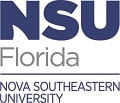NSU Faculty Research Concierge Health Care Service

NSU associate professors Louis Nemzer, PhD of The Halmos College of Natural Sciences and Oceanography and Florence Neymotin, PhD of The H. Wayne Huizenga College of Business and Entrepreneurship teamed up to study concierge doctors using machine learning. Concierge care in the United States represents an important part of the rapidly increasing “Velvet Rope Economy,” in which premium service is available for the privileged few prepared to pay a hefty price. Similar to the system of first class on airplanes or box suites at a football game, instead of a regular practice, these physicians charge large annual retainers. In return, patients can get priority attention with less time spent in waiting rooms. The use of machine learning methods in Economics is becoming increasingly popular, especially in the field of health care, which has huge amounts of data waiting to be analyzed. For this project, the faculty members scraped thousands of patients reviews from the website healthgrades.com and performed a machine learning sematic analysis to determine which words were most associated with concierge doctors in California and Florida, as compared with conventional family or internal medicine physicians. They found that technical words, like “staff,” and “diagnosis” are more likely to be on the minds of consumers of concierge care, who are paying for rapid access. In contrast, patients of conventional doctors mentioned “concerns” and “listen”, which show a greater concern for bedside manner. The work is published in Health Economics, which is classified as a first-tier journal by the Harzing Journal Quality List. Future work may include extending these semantic analysis methods to other online feedback sites.